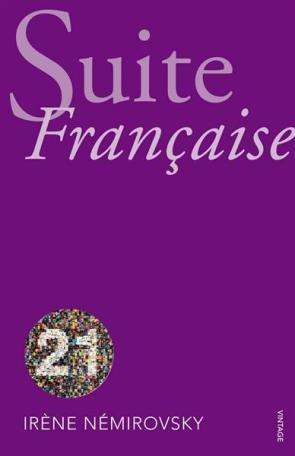Author: Irène Némirovsky
Date Finished: 7/05/14
Re-Read? : First time read
Challenges? : The Classics Club
Overall: 4/5 – rather good
This is a powerful read! I’m not quite sure where the recommendation of reading this book came from for me, but it was always on my TBR in the future list even before I started book blogging. I assume I found it on some list of “best books to read” or something, but I would certainly recommend it. It focuses on how the Nazi occupation of France in WWII actually affected the French people, which was a really interesting viewpoint.
The books is split into two novellas, the first focuses on Parisians and how they cope with France being defeated and Germans starting to flood into their country. The second book is set in a rural village that becomes occupied by the Nazis and deals with how the local people adapt to their new neighbours.
The plot is quite intricate as there are quite a few main characters – a couple of bank workers, a pompous author, a rich family and more and each short chapter focuses on one of these different character groups. Initially this can be a little confusing but you get used to the characters and everything starts to flow quite naturally after the first few chapters. In the second novella, there are slightly fewer characters but the storylines are more developed. I found the two novellas equally compelling but the second did tail off slightly and it took me a few days just to get round the finishing off the whole book.
The characterisation is very good but you do feel like Némirovsky has a lot more to say and the characters have a lot more to do. I think I read somewhere that Suite Française is actually incomplete and that Némirovsky had planned to write some more novellas to make it into a whole ‘suite’, but she was taken to Auschwitz herself and died there before she could complete it. This is probably why the ending seems a little abrupt and some of the plots seem to be slightly unfinished. It’s awfully sad that we will never get to hear all of what Irène wanted to say with this book, but I would like to think that I might be able to read this book in its original French to see how it reads in that (I own it already). I would also like to read some of Némirovsky’s other works, as this one was so unique and interesting.
I would definitely recommend reading this book – it is very touching and gives you such a massive insight into an area of history that many of us are (probably) quite unfamiliar with. To see something through the eyes of people in their day-to-day lives always gives you more perception and empathy than reading history textbooks ever can, even if the actual plot is fiction, I find. A very interesting and powerful read.




